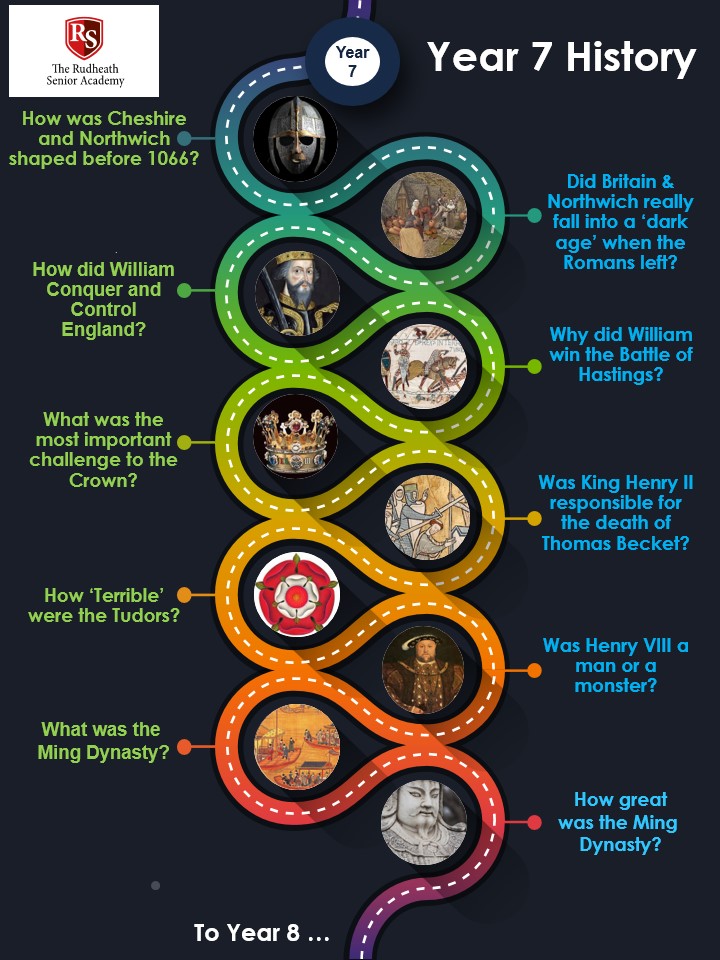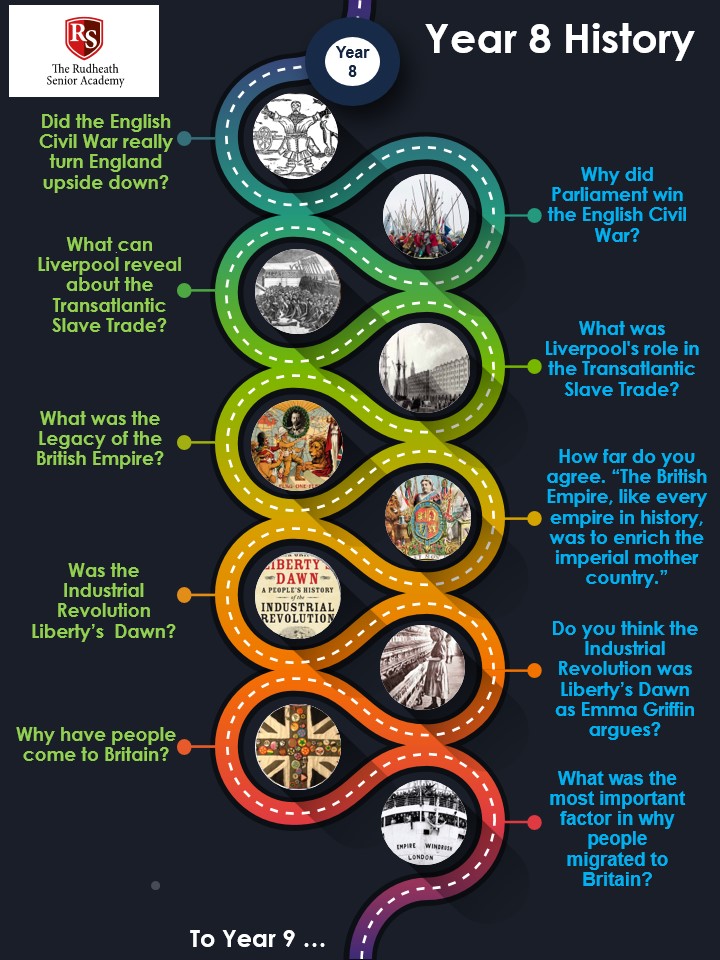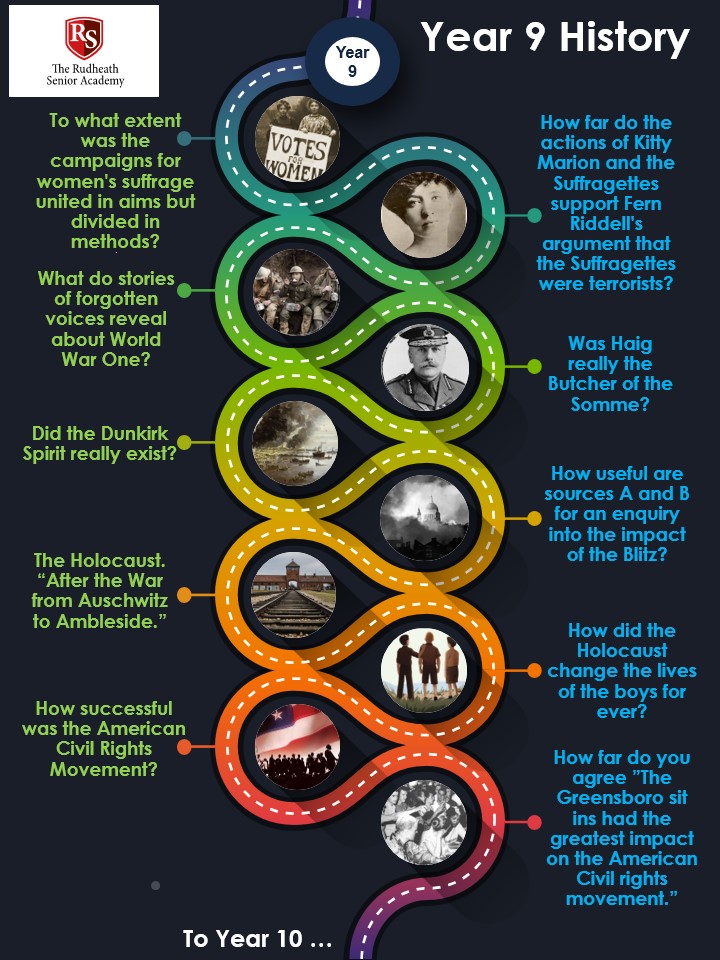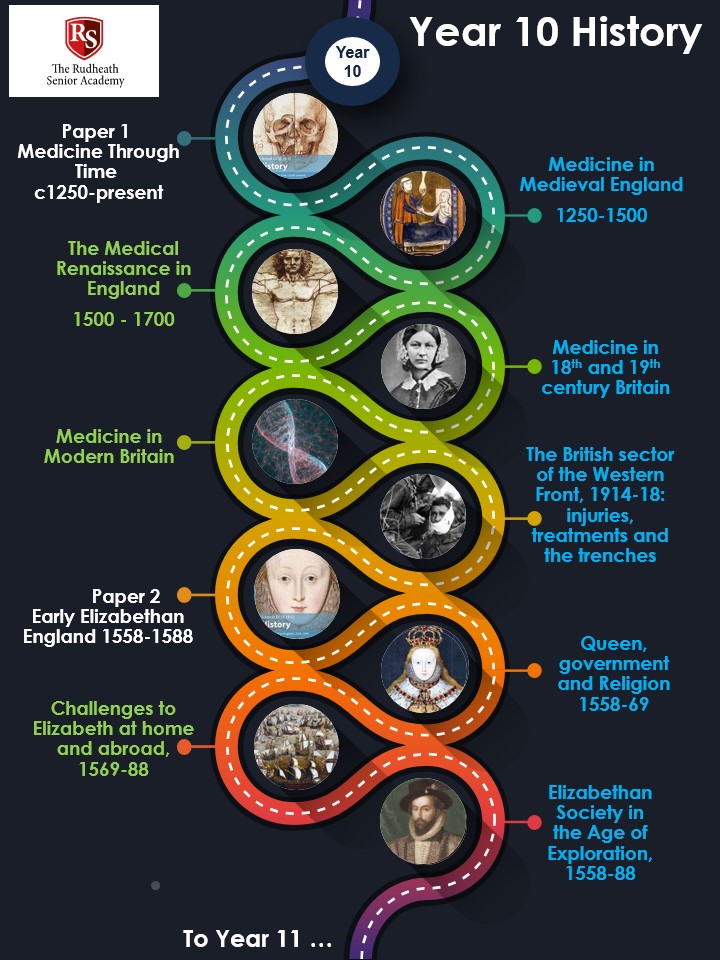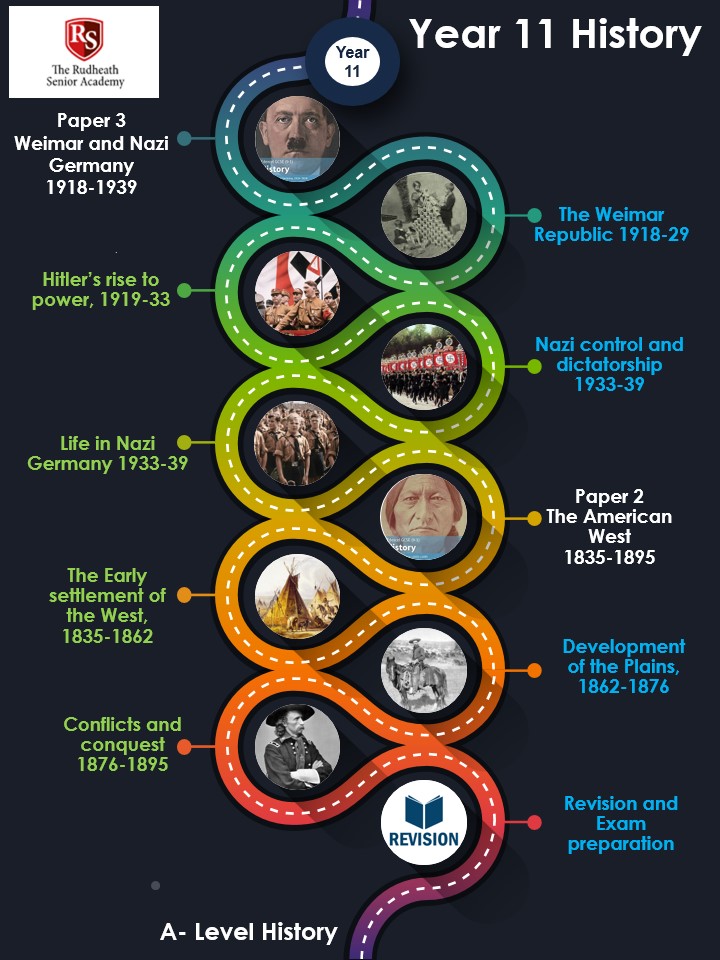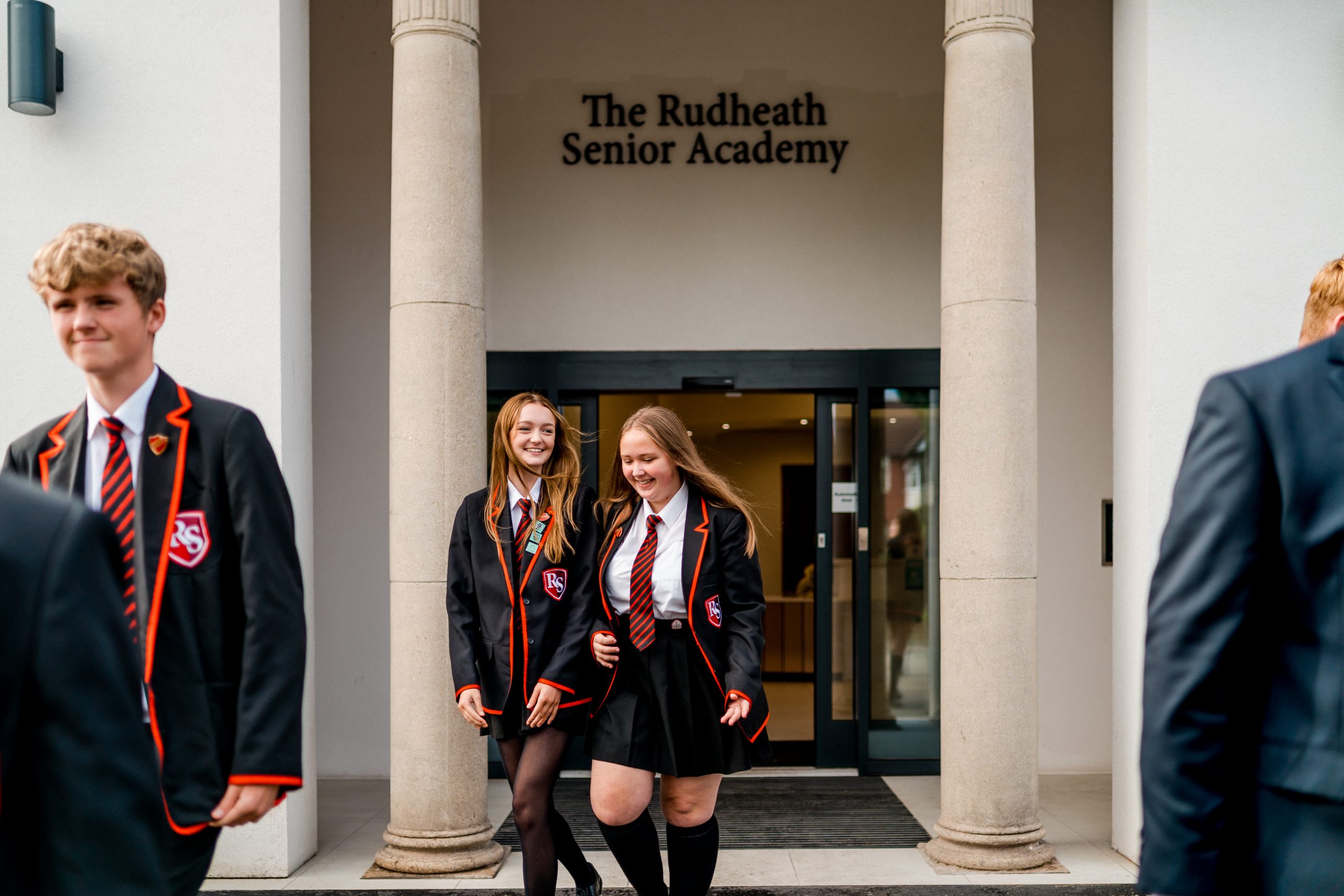
History
The purpose of the history curriculum is to help pupils gain a coherent knowledge and understanding of Britain’s past and that of the wider world. We want to inspire pupils’ curiosities to know more about the past and learn to ask perceptive questions, think critically, weigh evidence, assess arguments, and develop perspective and judgement. Studying history will help students to understand the complexity of people’s lives, the process of change, the diversity of societies and relationships between different groups, as well as their own identity and the challenges of their time.
History is a subject that forms the bedrock of our understanding of the culture in which we live as well as the wider world around us. Understanding the linkages between past and present is vital for a good understanding of the condition of being human. Part of the reason teaching history is so important, is because it is often nuanced and complex. It demands that we think beyond our current frame of reference to see and consider critically other points of view. When discussing sensitive topics like war, racism or genocide, challenge is to encourage students to understand multiple perspectives at the same time. Aside from learning to communicate ideas and engage in debates, history allows us to see that many problems in life have no clear answer. Realising these complexities allows students to cultivate flexibility, critical and problem-solving skills, and an openness towards other people’s perspectives.
History at Rudheath Senior Academy aims to equip our students with knowledge and the skills required to become well-rounded individuals. Our curriculum is structured to nurture a love of History through the development of five key concepts; historical skills and a depth of knowledge, using evidence, cause, and consequence, change and continuity and interpretations. These concepts are used as tools for students to make sense of, and understand, the volume of knowledge required for the development of subject mastery. Students study a wide range of historical periods from Roman Britain to 20th Century conflicts. This enables learners to study the past from a variety of standpoints and to make connections and comparisons over time.
The History curriculum offered immerses students in a range of cultures and engenders an enquiring and critical outlook on the world, with skills that can be applied in other subjects and in their future endeavours. We believe that students deserve a broad and ambitious History curriculum, rich in knowledge and skills. We are striving to make our curriculum as ambitious as possible to enable our students to expand their perspectives through a range of spiritual, moral, social, and cultural opportunities; to promote their sense of moral and social responsibility.
Further rationale behind our curriculum design includes ensuring students see the relevance of history in the modern world. Our choice of GCSE exam board and topics ensure students study a wide range of history and can make comparisons within and across periods thus being fully equipped for the study of A level history.
In History, we implement our curriculum through a range of teaching approaches including decision making exercises and creative tasks as well as more traditional source-based questions and essay writing. Discussion and debate are a regular feature of lessons, as well as regular spiralling back to ensure key content is secure through knowledge drills. The curriculum is designed to make sure that the content is not taught as facts to be memorised but in a way that helps students to acquire different concepts and, therefore, helps pupils develop their understanding of the subjects and progress in their learning.
Progress in History is measured through data produced at two key summative assessment points throughout the academic year assessing the student’s overall fluency and knowledge retention. As well as this 5 formative Quality Marked Assessments (QMA’s) in Key stage 3 and 5 exam practice assessments in Key stage 4 are undertaken. Formative assessment is embedded into lessons, in the form of peer & self-assessment, knowledge drills, visuals to demonstrate learning (e.g., diagrams, charts), questioning and verbal feedback, to highlight strengths and areas for improvement. Gaps in knowledge are quickly identified and corrections and improvements are promoted through whole class feedback.
History offers students a range of experiences outside of the classroom environment. These opportunities are designed to develop student’s experiences and enhance their cultural understanding of the world around them. Experiences have included a History trip to Krakow and Auschwitz, where students explored the rich and powerful History of the Holocaust. Students have had the opportunity to visit the Royal Armouries in Leeds, the Imperial War Museum North in Manchester, and multiple historical sites around London. We have also welcomed a number of organisations into the Academy such as the Holocaust Education Trust where students listened to oral testimony from a Holocaust survivor. A visit from the Anne Frank Trust saw Year 9 students deliver a Holocaust exhibition to their peers and local primary schools. Our commitment to excellence in Holocaust Education has seen the department achieve Holocaust Education Beacon Status from University College London. In addition to these activities, the History Department runs additional weekly revision support for all Year 11 learners. An annual Poppy Run in conjunction with the Royal British Legion and competitions including pumpkin carving and Easter egg painting that learners across the whole school can enter and earn points for a chance to win the Humanities Faculty Trophy.
Homework is delivered at Key stage 3 linked through the SENECA learning platform at Key stage 4 Homework utilises both the SENECA learning platform and regular exam response practice.
Students who continue with History post 16 follow the A-Level pathway with many students studying History at Sir John Deans College, Priestly College, and South Cheshire College. Studying history can lead to a vast number of excellent careers as diverse as the media, government, heritage organisations, conservation, teaching, archives, museums and galleries, the police and law.


